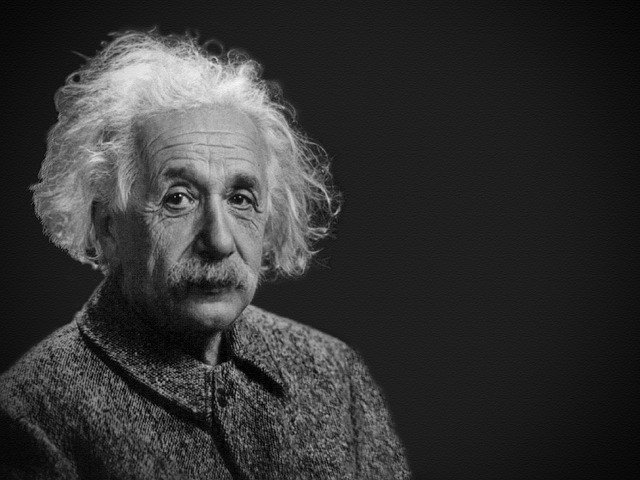
Albert Einstein did not believe in any official God or religion. He strongly believed in socialism. He had made some quotes regarding religion, God, and religious books, which are very famous. As he was one of the greatest scientists born on the earth and is known as a genius, people are very curious about his thoughts about religion and God.
Albert Einstein was born on March 14, 1879. He died on April 18, 1955. During his lifetime, he changed the course of science and gave a new vision to the world to solve the secrets of the universe. He is known for the discoveries of the photoelectric effect, Brownian motion, Special General theory of relativity, and General theory of relativity, E=mc2, Bose-Einstein condensed matter, etc. He received Noble prize in 1921 for his work regarding the photoelectric effect. Some scientists received Nobel prizes for proving his theorems!
Einstein used to believe that the secret of the universe itself is God. Einstein’s religion was Judaism. Because of this Nazis burnt all his books in 1933.
A Hindu scientist Satyendranath Bose and Albert Einstein collectively shares the credit of Bose-Einstein Theory. His book “Theory of Relativity” was first translated into English by Meghanand Saha and S. N. Bose. One more scientist Chandrashekhar Bose worked as an assistant to Alber Einstein.
Supposedly, a quote about Bhagavad-Gita by Einstein is very famous.
“When I read the Bhagavad-Gita and reflect about how God created this universe everything else seems so superfluous.”
Albert Einstein’s Quotes about religion and God:
It was, of course, a lie what you read about my religious convictions, a lie which is being systematically repeated. I do not believe in a personal God and I have never denied this but have expressed it clearly. If something is in me which can be called religious then it is the unbounded admiration for the structure of the world so far as our science can reveal it.
Scientific research is based on the idea that everything that takes place is determined by laws of nature, and therefore this holds for the action of people. For this reason, a research scientist will hardly be inclined to believe that events could be influenced by a prayer, ie by a wish addressed to a Supernatural Being.
A man’s ethical behavior should be based effectually on sympathy, education, and social ties and needs; no religious basis is necessary. Man would indeed be in a poor way if he had to be restrained by fear of punishment and hope of reward after death.
I cannot conceive of a God who rewards and punishes his creatures or has a will of the kind that we experience in ourselves. Neither can I nor would I want to conceive of an individual that survives his physical death; let feeble souls, from fear or absurd egoism, cherish such thoughts. I am satisfied with the mystery of the eternity of life and with the awareness and a glimpse of the marvelous structure of the existing world, together with the devoted striving to comprehend a portion, be it ever so tiny, of the Reason that manifests itself in nature.
I cannot imagine a God who rewards and punishes the objects of his creation, whose purposes are modeled after our own — a God, in short, who is but a reflection of human frailty. Neither can I believe that the individual survives the death of his body, although feeble souls harbor such thoughts through fear or ridiculous egotisms.
I believe in Spinoza’s God who reveals himself in the orderly harmony of what exists, not in a God who concerns himself with the fates and actions of human beings.
One strength of the Communist system … is that it has some of the characteristics of a religion and inspires the emotions of a religion.
(Quotes are taken from https://www.positiveatheism.org/hist/quotes/quote-e.htm)